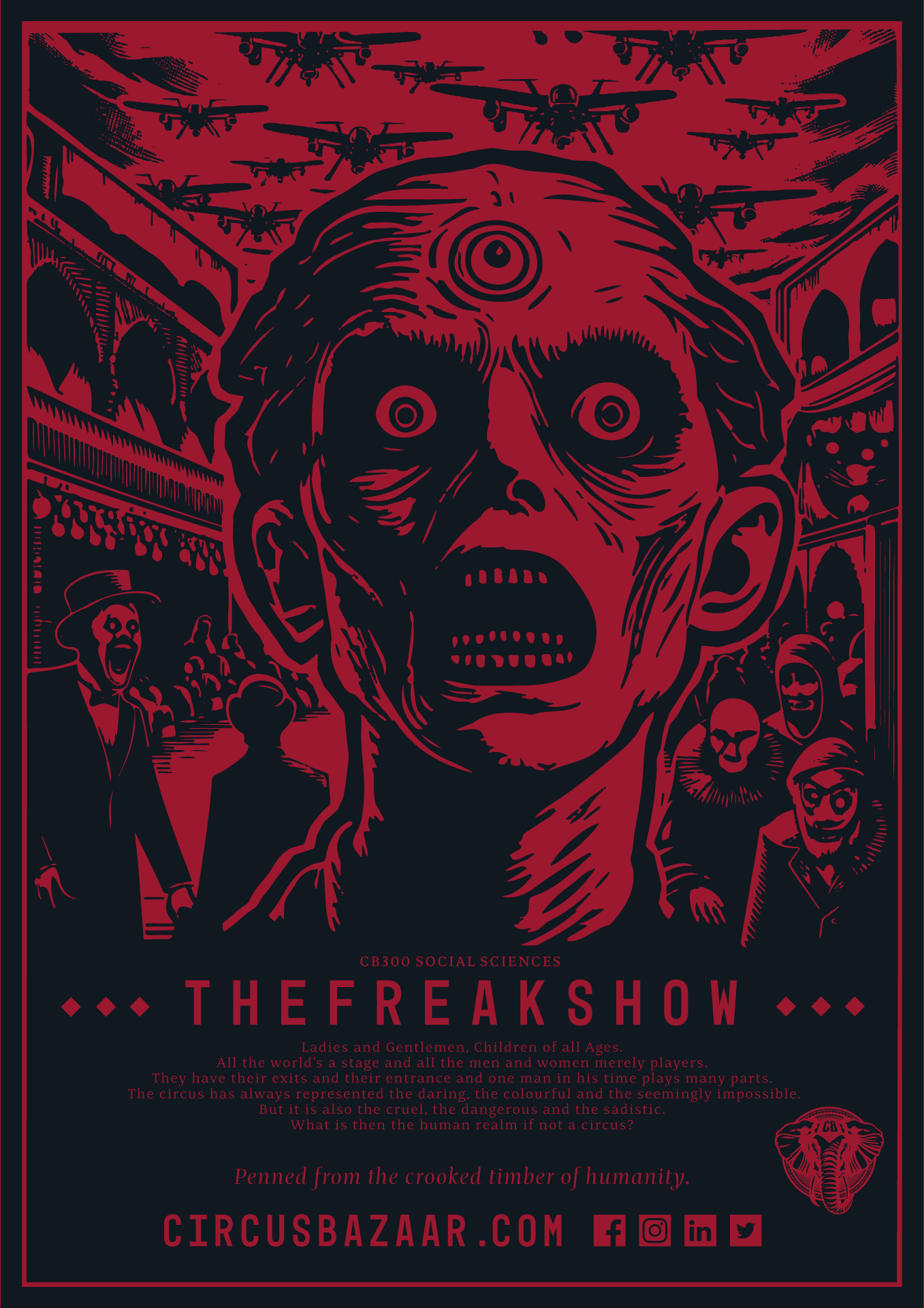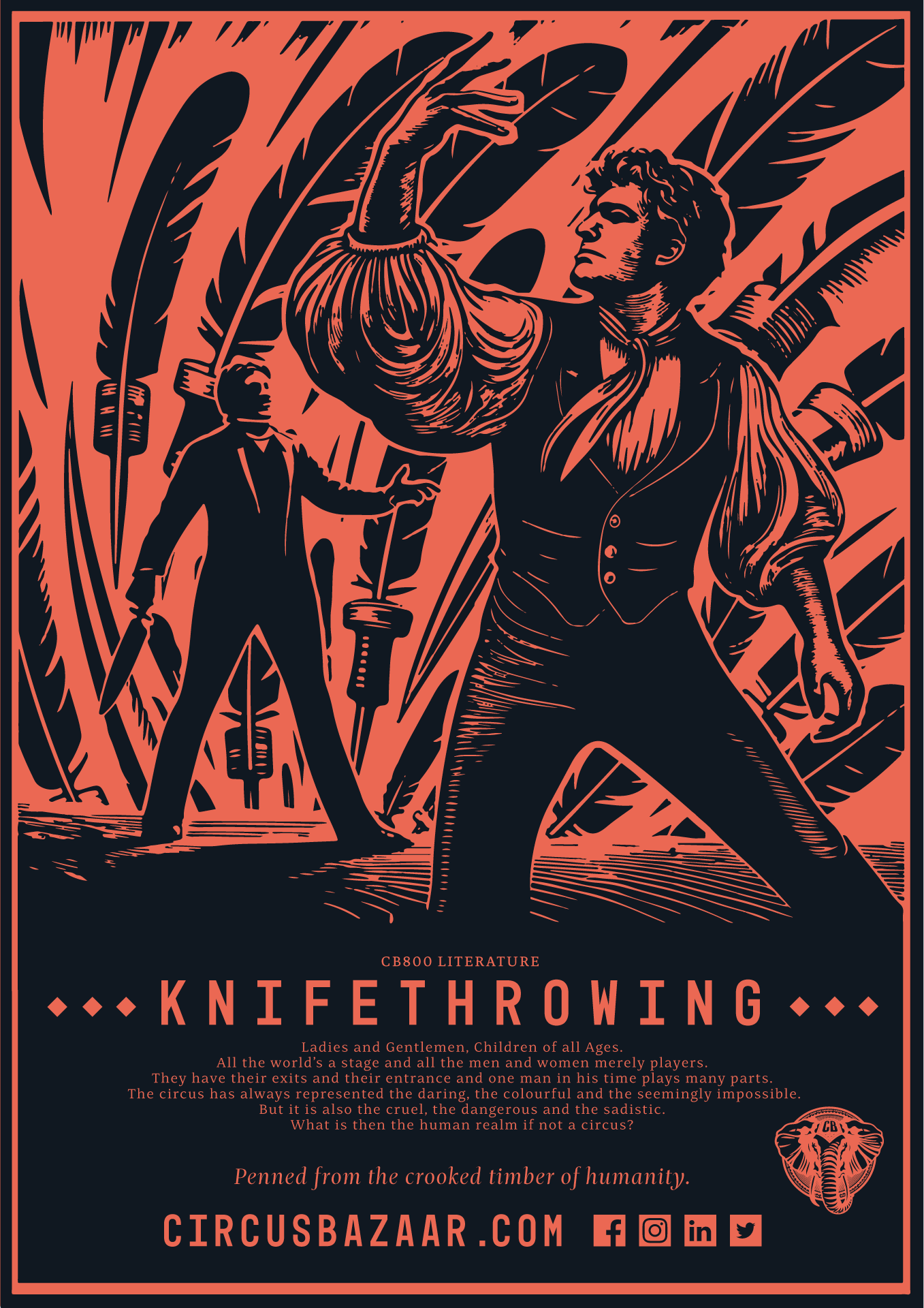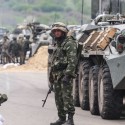Food and medical supplies are exhausted, economies from both side of Ukraine’s eastern border are crumbling, and the only hope to end this conflict may be the hopelessness itself.
[dropcap size=big]T[/dropcap]he conflict in Eastern Ukraine has been raging for more than six months. Initially, the rebels in the Donetsk and Lugansk regions planned to capture the main cities, hold referenda and join Russia. On the other hand, the government in Kyiv was expecting to liberate the east from the “terrorists” within several weeks. However, a small rebellion evolved into a protracted and devastating civil conflict with a death toll of over 4,300 people. For now, winter is coming, the cease-fire has not been respected, food and medical supplies are exhausted, economies from both side of Ukraine’s eastern border are crumbling, and the only hope to end this conflict may be the hopelessness itself.
Scholars of International Relations distinguish four possible scenarios of a civil war: incumbent victory, rebel victory, negotiated settlement and a stalemate (sometimes described as a “frozen conflict”). As the Donbass war is a secessionist conflict with international involvement, rebel victory may appear to an independence of Eastern Ukraine from Kyiv. As we know, all of the previous wars of secession in the post-Soviet area ended with a rebel victory, if supported by Russia. Still, victory was never complete, for it was not succeeded by either official agreement with an incumbent government, or international recognition. Nagorny Karabakh and Transnistria are not recognized by any state. Abkhazia and South Ossetia are essentially recognized by Russia and each other. The proclamation of Donetsk and Lugansk people’s republics was not approved even by Vladimir Putin, who nevertheless supported them with weapons, people and supplies. Therefore, is there any chance that the Donbass conflict will end in a different way?
The government victory is now very unlikely. The Ukrainian army was not in fighting condition due to organizational weakness, corruption and, allegedly, infiltration by Russian agents. Over the period of so-called “anti-terrorist operation,” the government changed three defense ministers and raised the maximum conscription age from 25 to 60 years. The military supplies were soon depleted, so Kyiv had to turn to its western partners and fellow citizens to provide warm clothes, body armor vests and medicines for the soldiers. Obviously, the Ukrainian army has no chance to win this war, if Russia keeps supporting the rebels. The initial plan was to encircle the major cities and shut down the Russian border, but, eventually, the rebel forces cut off and surrounded the advancing Ukrainian troops. The Ukrainian command attributes this rebel success to a surge of Russian troops, who are now widely reported to openly cross the border bearing arms and riding armored vehicles. Unfortunately for Ukraine, it is not likely to receive any substantial military support; its bid for NATO membership failed and the United States refused to recognize it as a military ally, limiting assistance to light or non-lethal armaments.
Rebels also have relatively low chances of expanding their area of control. The Kremlin-inspired project of Novorossiya (New Russia) presumes that a broad strip of land from Lugansk to Odessa (including Crimea) does not share Ukrainian identity, and, thus, should have a different government or, at least, an autonomy. Despite Novorossiya being a stillborn project with very limited support, it suggests a strategic solution for Russia regarding how to supply blockaded Crimea. Russian forces should simply help the eastern rebels to “liberate” the territories, occupied by the “Kyiv junta”. So, why Russia does not take this action?
Mychailo Vynnickiy previously suggested that there would be a high probability of a Russian offensive in Eastern Ukraine before the end of October, because otherwise Moscow would not be able to supply its new land grab during winter. Nevertheless, fresh snow lies on the Ukrainian ground, but the pro-Russian forces did not move any farther. And there are good reasons why this did not happen.
The rebels are not strong enough to start their own assault. Witnesses and journalist reports say that the rebels’ units are up to 75% Russian-recruited. Moreover, they need Russian airpower and heavy armaments to break through the Ukrainian lines of defense. However, uncovered assault will highlight Russia as a predatory aggressor and will bury any hope for reconciliation with the West. To this day, Vladimir Putin has already “reaped his fruit” from the conflict. The EU delayed the enforcement of the Association Agreement with Ukraine until 2016, and the United States is definitely not willing to accept it into NATO due to fear of entrapment. Mr. Putin showed the world that if Russia does not want its neighbor to accede to the western institutions, this will not happen. Any additional demonstration of force may swing the pendulum to the other side, where the U.S. and the EU will consider a closer military engagement.
As both sides cannot reach a military victory, a stalemate ending is already in place. The Minsk Protocol of September 5, 2014, declared a cease-fire and prompted the Ukrainian government to pass a law regarding the autonomous status of Lugansk and Donetsk. Despite that, the violence continued, and President Petro Poroshenko announced his intention to abolish the law of Donbass’ special status. So, why does the cease-fire not transform into negotiated settlement? A broad shelf of IR literature (e.g. Alexander Downes, Barbara Walter, Jack Snyder and Robert Jervis) suggests that the rebels and governments both fall victim to the security dilemma. Indeed, the rebels fear that, once they lay down their arms, the government will persecute them and repeal their self-rule. In turn, Kyiv believes that regional autonomy threatens Ukraine’s territorial integrity, and self-ruled Donbass may secede as easily as the Autonomous Republic of Crimea did in March 2014. Naturally, the parties to a civil war do not negotiate with each other until one of them defeats the other. Foreign mediation does not necessarily mitigate the security dilemma, as well. However, one more factor may bring the war to its end soon enough – war weariness.
War and economic sanctions heavily affected the Ukrainian and Russian economies. The Russian ruble depreciated to the U.S. dollar by 60% and the Ukrainian grivna by twofold. Capital outflow from Russia increased 2.2 times in 2014, reaching the figure of $74.6 billion. A large and shock-resistant Russian economy is expected to stop growing by 2015, as the Russian Central Bank reports. Moreover, it may even decline if the oil price falls below $70 per barrel. As for the Ukrainian economy, it will decline by 10% by the end of 2014, as the Economist predicts. The economic disaster hit everyone. Just as the National Guard soldiers in trenches near Slovyansk cry out for food and warm clothes, patients in Kyiv hospitals shiver from heating jams and face a total deficit of food and medicines. Moreover, low-paid and retired people now have to survive on $5 a day. Still, the people of Donbass suffered the most, as the Kyiv government cut off banking payments, electricity and medicine supplies, making the region 100% reliant on Russian humanitarian aid.
Despite President Putin’s promise, that sanctions and a ban on food imports from the EU would not hit the Russian population, the reality suggests the opposite. Although the official expected inflation in 2014 is 8%, prices on some food articles increased by 27%. Namely in Moscow, the price of buckwheat (an important grain in the Russians’ ration) skyrocketed by 100% and some shops simply do not have it in stock anymore. While Russia has already sent eight humanitarian aid convoys to devastated Donbass, its own citizens have to cut down their food consumption as well.
Shortage of supplies and war-related grievances affect the civilians’ morale and make them opposed to their governments’ policy. In several Ukrainian cities, the conscription campaign resulted in protests and civil disobedience. In Russia, the Committees of Soldiers’ Mothers and the Dozhd’ Channel carried out their own investigation and identified at least 17 Russian soldiers who were killed in this undeclared war. Consequently, public opinion polls by Levada-Center shows that 68% of Russians are opposed to any involvement in the Donbass war. President Putin is aware of the possibility for new mass protests, but for President Poroshenko domestic policy failures may lead to a new Maidan.
War weariness has a very clear implication for Russia, Ukraine and the rebel forces. First, a winter military campaign with a lack of supplies and popular support is a grave strategic mistake, which may result in heavy casualties and public unrest. Second, the conflict burned itself out to the point that it became pointless for all of the parties. Vladimir Putin pulled the NATO-EU carpet away from under Ukraine’s feet. Petro Poroshenko prevented any further disintegration of Ukraine. In addition, the rebels vindicated their claims for self-rule, which were verified in the Minsk Protocol. Therefore, negotiated settlement is no more an artificial construct, but a reasonable way to consolidate gains. The U.S. Ambassador to Russia, John Tefft, declared that, with a full implementation of the Minsk protocol, the Ukrainian crisis would be over.
From this point, the Donbass endgame looks as follows. Russia withdraws its troops from Donetsk and Lugansk. This area reintegrates into Ukraine as an autonomous Russian-speaking region. Kyiv pardons the former rebel fighters and lifts the blockade of Crimea. In return, Russia supports reconstruction of Donbass with resources and humanitarian aid. For the next twenty years, the memory of war atrocities and a preoccupation with economic modernization will determine the durability of bargain between Kyiv and Moscow.

























